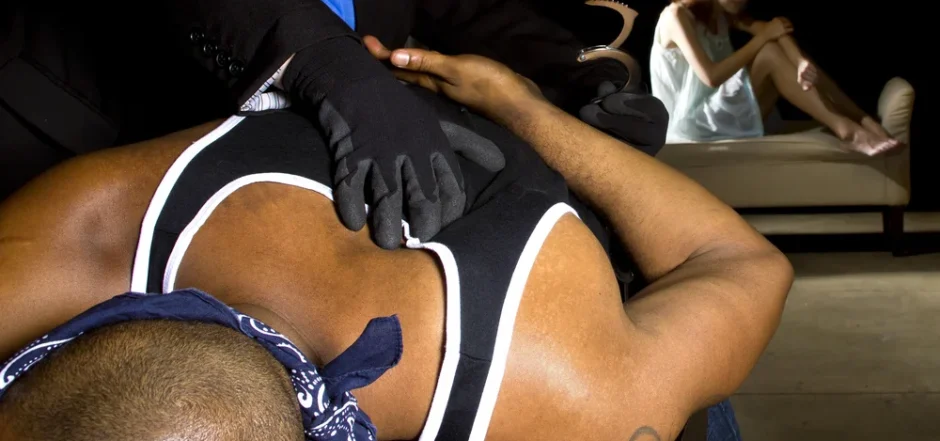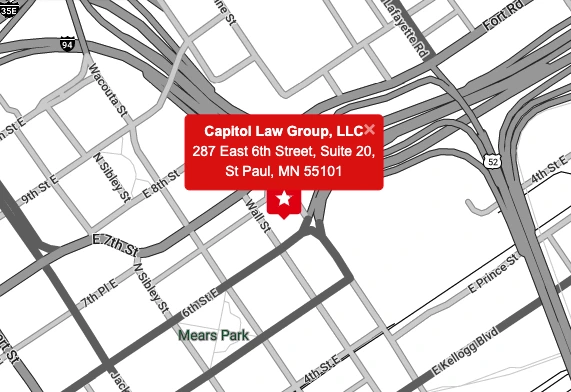Don’t Talk to the Police after a Sex Crime Arrest – Call One of Our St. Paul Criminal Defense Lawyers

Getting arrested is always a stressful experience. Police officers can be intimidating, and being put in jail can be frightening. Many people let their stress and emotions get the best of them, and they say things to police officers that they should never have said. Often, this includes answering questions or giving confessions that can then be used by prosecutors to convict you of a crime.
If you’re arrested on suspicion of a sex crime, it is important to understand that you are only a “suspect” and not yet a defendant. Often, police officers will want to conduct interviews – also called interrogations – to gather additional evidence needed to charge you with a crime. Just because you’re arrested does not mean a charge and conviction is imminent. For this reason, you should always contact an experienced St. Paul criminal defense lawyer before you ever answer any questions from the police.
Your Miranda Rights
Almost everyone has seen TV shows and movies in which police officers inform an arrestee of the following:
- They have the right to remain silent
- Anything they say can and will be used against them
- They have the right to an attorney
- If they cannot afford an attorney, one may be provided for them
These group of rights is called your “Miranda rights,” as they stem from a highly important case, Miranda v. Arizona. These rights come from your Fifth Amendment right against self-incrimination. While the wording may not always be the same, the police must clearly inform you of these rights once you are in custody and before they ask you any material questions. This includes asking questions in the cop car. If an officer fails to properly read your Miranda rights, it is a violation of your constitutional rights.
Many people believe that exercising their Miranda rights by refusing to answer questions and calling a lawyer will make them seem guilty. However, the law protects arrestees in this situation, as the exercise of Miranda rights cannot be used as evidence against them in a subsequent criminal case. On the other hand, statements you make to police officers without an attorney present certainly can be used against you.
Why You Should Always Remain Silent and Call a St. Paul Criminal Defense Lawyer
When the police read your rights, you should always clearly express your wish to invoke those rights. This means that officers should not ask you any questions until you have a lawyer present. Many people think that since they did nothing wrong, they have nothing to lose by answering questions. After all, they are innocent, so how can their answers lead to evidence against them and why would they need a lawyer? This is commonly a mistake.
Police officers are trained in interrogation tactics intended to get answers that can support criminal charges. Many times, you may not even know that you are making incriminating statements, and even completely innocent people may do so. A common example is as follows:
- The police officer asks if you used a weapon to commit a sexual assault.
- You reply, “I don’t even own a gun!”
- The officer says, “How did you know we were talking about a gun?”
While you may have simply assumed they were referring to a gun, the fact that you mentioned a gun makes it seem like you had direct knowledge of what happened. It is always better to simply remain silent until you have legal representation.
A St. Paul criminal defense lawyer can tell when you should not answer a question because the answer may be self-incriminating. They will stand up for you in communications with the police or prosecutors to ensure you are not intimidated into giving answers you should not give.
Exercising your Miranda rights is especially important in sex crime cases. Often, the police may make an arrest based on the report of the alleged victim only. There may be no other concrete evidence tying you to the crime other than a victim identification, which is often unreliable. You can bet that officers will want to interview you to get a confession or information that can be used to charge you with the sex crime. If you exercise your Miranda rights and call a defense lawyer right away, you can limit the damage that may have occurred in police interrogations.
Your First Call Should be to Our St. Paul Criminal Defense Lawyers
Too often, suspects under arrest will answer questions by the police that lead to evidence against them. Always remember that you have the right to remain silent and call the St. Paul criminal defense attorneys at Capitol City Law Group. We help clients under arrest on a regular basis, and we can assist you during any subsequent criminal case. Please call 651-705-8580 or contact us online to discuss how we can help in your situation.




